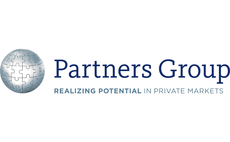
Women in private equity: Minority report

When asked to name most difficult aspect of being a woman in private equity, Lisa Suennen, co-founder and managing member of California-based venture capital healthcare investor Psilos Group, cites the adage that women need to work twice as hard to get half as far as men in the industry.
“It’s annoying that women have to work to have their ideas taken seriously while men’s ideas are presumed to be worthy of serious consideration,” she explains. “Just the idea that there is an inequity for no reason drives me crazy.”
Women from the US to Asia and everywhere in between hear their predecessors say that, in business, it’s still a man’s world. The imbalance is all too apparent in private equity, where women make up less than 10% of executives globally. Strenuous work schedules, constant traveling and the general testosterone level in offices have been cited as reasons why women have instead gravitated toward other areas of finance.
Yet female industry participants in Asia and the US contest these claims, saying that the job specs are comparable to those in other high-pressure environments. The difference is that it is much harder to open the door in private equity.
“I think the main reason we’re seeing few women in the industry is because it is predominantly comprised of smaller partnerships that don’t necessarily have the same pressure to hire a diversified staff,” says Sheryl Schwartz, senior managing director or general partner Perseus in New York, where she is also surrounded by men. “I think people like to hire people who are like themselves. As long as you have white men at the top doing the hiring, they’re going to be inclined to hire men.”
A proactive human resources department might make a difference but these are lacking in companies that, in the vast majority of cases, aren’t publicly traded and so aren’t really accountable to anyone apart from their LPs. So too might a broader-minded outlook among industry leaders. Regardless of where blame is pinned, the outlook is not positive: For all that women and men hope that the industry’s glass ceiling can be shattered, they are at a loss to name a factor that could have a significant enough impact.
Women occupy a paltry 8.7% of executive positions in private equity outside Europe and North America, according to a Prequin report released in February. Europe leads the field with 9.1%, while North America is on 8.9%. Statistics on the topic are difficult to come by, and Prequin’s figure itself is wide-reaching, encompassing buyout, venture, mezzanine, distressed debt and other private equity vehicles. If the number of women GPs were specifically examined, representation would undoubtedly fall below 8.7%.
Unappealing lifestyles
Women are seemingly more prevalent in the venture and LP space. According to Prequin, 6.7% of executives in global buyout funds are women, compared to 9.5% in venture funds and 11.3% in real estate funds. Female managers in Asia corroborate these findings.
This, sources add, has much to do with the lifestyle attached to these roles, which are oftentimes less rigorous than being a fund manager. A GP’s lifestyle includes long hours and non-stop travelling, which plays into the age-old axiom that women largely opt to spend more time with their families and children. While this archaic mindset has been outgrown by many, both women and men say there is an element of truth in the thinking. “If I had to pinpoint a reason why there are fewer women in GP roles I would guess that it has something to do with the job nature and the balance of work life and family,” says Anna Cheung, a partner at 3i in Hong Kong. “In society men are viewed as the breadwinners and women find their own compromises to strike their balance.”
This hasn’t been lost on men. GPs operate under tight quarters when managing funds and companies, and dependence on each member of the team is crucial. Given this dynamic, fear that a woman might depart a fund to focus on her home life has been know to be taken into consideration at interviews – whether such an event is founded or not.
Archana Hingorani, CEO and executive director of IL&FS Investment Managers in Mumbai, recounts stories in which male interviewers ask prospective junior-level female employees “how many people are at home” as a way to decipher whether they are married, single or has children. “It’s an emerging market mentality,” she says. “Even if they don’t ask, they may think it in their heads. This is really only relevant for entry-level spaces because once you’re beyond middle management it’s not as much of a concern.”
Although most sources who spoke to AVCJ have seen or experienced some form of inequality, they agree that the key to overcoming these obstacles is to “perform the hell out of your job,” and “never play the family card.”
Schwartz admits to missing important moments in her children’s lives for her job – something that both men and women constantly struggle with – but refuses to use this to evoke special treatment. She passes this wisdom along to female staff who struggle with competeing demands of work and children. “The women who struggle with it are the ones who have trouble delegating. They don’t want someone else taking their kids to the doctor,” she says. “My advice is that you need to have significant support at home in terms of family, staff or your spouse.”
Time will tell
Time may ultimately level the playing field. It is also possible that as more of the large private equity firms go public there will be a trickledown effect in terms of investment in human resources infrastructure, adherence to industry best practice and compliance with equal opportunities standards.
But suggesting that the number of women in private equity could be bolstered through policy initiatives is a slippery slope. “That’s like saying women can only be successful when funds are told they must be diversified,” Cheung says.
Nevertheless, earlier this month a group of 19 headhunting firms in the UK signed a pact to ensure that at least 30% of all candidates on the long lists of FTSE 350 directors are women. This comes as the UK government aims to see 25% of all FTSE 100 boards comprise women. Currently, the boards of Norwegian companies must be at least 40% female, while Belgium, Italy, the Netherlands and Spain have mandated that female representation on corporate boards reaches 30-40% by 2015 or 2016.
It is difficult to say what knock-on effect this might have on private equity. Even at the larger firms, the KKRs, Blackstones and Carlyles of the world with established human resources departments, women are still very much the minority.
More than 13% of The Carlyle Group’s executives at managing director level or above are women, although this figure is smaller in Asia, according to Dorothy Lee, a spokeswoman for Carlyle Asia. Lee was quick to mention that female representation is higher in other areas, such as human resources, corporate communications and back-office operations. The firm also works to foster women’s careers internally by sponsoring social gatherings and workshops that connect women in the firm across all pay grades.
Blackstone Group and KKR did not respond to AVCJ queries by press time.
Interestingly, there is a global trend for women to create their own opportunities. Rather than work their way up the ladder to the top of existing firms, women are launching independent funds. Asia has been a hotbed of spinoff vehicles. In China, former Baring Private Equity executive Kathy Xu launched Capital Today, Melissa Ma, Rebecca Xu and Laure Wang started Asia Alternatives, and, most recently, Mary Ma departed TPG to launch Boyu Fund. Activity in India has been led by Renuka Ramnath, who departed ICICI Venture to launch Multiples Alternate, and Veronica John, who started Serasi Capital after leaving IDFC.
This kind of autonomy, though, is usually only achieved after years of hard work proving one’s worth in a male-dominated environment. Extensive networking and a thick skin are crucial to getting a place at a firm, but once there, women can still feel like outsiders in a way that men don’t necessarily appreciate. Plenty of female industry participants admit to reading the sports pages in order to have something to chat about over the water cooler. Some still do for the benefit their LPs in the US.
“You never want to walk into a meeting where there was a big baseball or basketball game in whatever state you’re visiting and not know about it,” says one Asian-based GP. “It’s also not just sports. When we complete a big deal the guys want to go out to bars and celebrate. I’d rather go home and put my feet up or get a massage, but I still go to the bar with them.”
Not everyone feels that the social aspect of firms is so linear. Women in Asia and the West say that they’ve been able to broker relationships with their male coworkers by talking about politics, current events and the business at hand.
According to Psilo’s Suennen, the one thing women can do to make the workspace less isolating is to jump in and initiate change. Women tend to shy away from the places where the guys congregate to talk money, and forget to mix business with pleasure.
“If you’re standing on the sideline of the kids’ soccer match with a male private equity executive or entrepreneur, talk about your fundraising strategy,” she advises. “And most important is a wicked sense of humor. When you inevitably face the anti-female comment, it is best to respond with wit and a shot right back over the bow.”
She says, he says
On the whole, the women who spoke to AVCJ say they see few inklings of discrimination in terms of day-to-day duties, especially from their direct teams. It is generally accepted by both sexes that men in private equity can be crude, whether it’s their sense of humor of the way they banter, but there is no willful desire to cause offense. And while the amount of work required to gain credibility is wearing, once it is achieved, women feel that the value and outlook they bring to funds and management are a unique asset.
“Women tend to be more intuitive of other people than men,” the Asia-based GP describes as one way women can make a difference. “That makes women better at relationships, which is very conducive to the LP-side of things.”
In terms of LPs, Jason Sambanju, co-head of Paul Capital in Asia, says that a GP’s returns are far more important than the gender of the person running the fund. Due to the low female representation among Asia’s GPs, Paul Capital hasn’t invested in many funds run by women. However, there are a handful of professionals – ranging from Capital Today’s Xu, to Kendall Court’s Yeo Kar Peng in Singapore, to Multiples Alternate’s Ramnath – whose reputations precede them.
“We are invested in a couple in funds in China that have women managing entire offices, and they’re actually some of our best-performing funds,” Sambanju says. He adds that approximately 25% of Paul Capital’s own investment staff is women, largely on the more junior side of the spectrum for the time being.
Another Asia-focused LP has a somewhat different view. Based on his experiences in China, the LP observes that it is so difficult for female fund managers to rise to the top that some overcompensate and behave in an overly aggressive manner. Others, meanwhile, aren’t aggressive enough, and this costs them business.
Unsurprisingly, most female GPs find this attitude chauvinistic. “Why is it when women are tough then it is viewed negatively? And if men are tough, they like it? It’s a difference in perception,” 3i’s Cheung says. “What I’ve largely seen in this industry is that people are judged by their ability.”
Asian private equity professionals are to a large extent a product of their nascent industry, which has fewer protocols in place to address equality. The expectation is that this will change as more women flood into the entry levels of the financial services sector, taking up positions as analysts and associates before slowly graduating to higher ranks.
In the meantime, Psilo’s Suennen suggests that female PE professionals forget about gender and get on with their jobs. “Don’t be afraid to hang with the guys on their terms, put your head down and deliver. Find a mentor or colleague that is gender-blind and perform the hell out of your job,” she says. “When you produce cash returns to investors, they are eager to see you do it again and forget you are wearing a bra.”
Latest News
Asian GPs slow implementation of ESG policies - survey
Asia-based private equity firms are assigning more dedicated resources to environment, social, and governance (ESG) programmes, but policy changes have slowed in the past 12 months, in part due to concerns raised internally and by LPs, according to a...
Singapore fintech start-up LXA gets $10m seed round
New Enterprise Associates (NEA) has led a USD 10m seed round for Singapore’s LXA, a financial technology start-up launched by a former Asia senior executive at The Blackstone Group.
India's InCred announces $60m round, claims unicorn status
Indian non-bank lender InCred Financial Services said it has received INR 5bn (USD 60m) at a valuation of at least USD 1bn from unnamed investors including “a global private equity fund.”
Insight leads $50m round for Australia's Roller
Insight Partners has led a USD 50m round for Australia’s Roller, a venue management software provider specializing in family fun parks.








